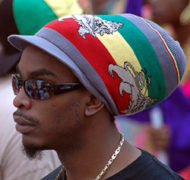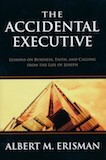What Does it Look Like to be Missional?
Blog / Produced by The High Calling
Much of the buzz about missional ministry is found among young church planters and consultants in new missional networks, like Missio Alliance, Forge, Missio, Verge Network, Acts 29 Network, and GCM Collective. I’ve been interacting with missional church leaders for the past nine years, ever since I started my previous website, Vanguard Church, which Friend of Missional named a “Catalyst for Missional.” So even old goats like me have been involved.
But more importantly, the idea that churches should be “missional” has been around for a long time and has been articulated by some very thoughtful theologians and practitioners.
The recent emergence of interest in how the North American church can become “missional” was inspired by Lesslie Newbigin’s The Other Side of1984: Questions for the Churches, a monograph that was published by the British Council of Churches and widely disseminated and discussed. Newbigin had returned to England after four decades in the foreign mission field of India and had both an outsider’s and a missionary’s insight into Western Christianity.
According to a seminal book on the missional church written in 1998, Missional Church: A Vision for the Sending of the Church in North America,
“The missiological consensus that Newbigin focused on our situation may be summarized with the term missio Dei, ‘mission of God.’”
Missional is not a fad of the young hipster crowd. It is as old as, well, the Bible.
 Perhaps the most important theological books published recently on what it means to be “missional” have been written by Christopher Wright. His academic study, The Mission of God: Unlocking the Bible's Grand Narrative, dives deeply into the Scriptures to define what God’s purpose in the world actually is, and the follow-up (a very accessible and applicable book) The Mission of God's People: A Biblical Theology of the Church's Mission explains, in light of God’s mission, what the church’s mission ought to be.
Perhaps the most important theological books published recently on what it means to be “missional” have been written by Christopher Wright. His academic study, The Mission of God: Unlocking the Bible's Grand Narrative, dives deeply into the Scriptures to define what God’s purpose in the world actually is, and the follow-up (a very accessible and applicable book) The Mission of God's People: A Biblical Theology of the Church's Mission explains, in light of God’s mission, what the church’s mission ought to be.
“Is the church’s mission primarily the delivery of the message of the gospel—in which case the verbal element is all that really matters? Or does the church’s mission include the embodiment of the message in life and action? Sometimes this question is raised as the tension between proclamation and presence. Or between words and works. We will explore the integration of what the church is meant to be as well as what the church is meant to say.” (The Mission of God’s People, p. 30).
So what does it mean to be missional? According to the chapters of Wright’s Mission of God’s People, it looks like this:
- Missional people know the story that they are a part of. It is more than each one of us has sinned and we need to accept Jesus so we can get into heaven. It is a full story of God’s intention to bring redemption to his entire creation. Question: How does your work participate in God’s redemptive work to heal all things in his world?
- Missional people care for the creation. How am I caring for the physical creation in my work? How am I exploiting the physical creation for selfish reasons?
- Missional people are a blessing to the nations. How does my work do this? Are my goods and services a blessing to others?
- Missional people are redeemed for redemptive living. How do I intentionally reverse the effects of the Fall in and through my work?
- Missional people represent God to the world. What kind of employee am I? What kind of a supervisor or boss am I? How do I treat suppliers and customers? How is the institution in which I have influence represent God’s goodness, redemption, and hope?
- Missional people proclaim the Gospel of Christ. Do we readily tell people that, in Christ, God reigns? Do people really understand that Jesus Christ redeems? Have we invited people to join in the family of God?
- Missional people send and are sent. Am I willing to go anywhere God is sending me? Do I encourage others to do so?
- Missional people live and work in the public square. Since God created the public square and governs it, he is redeeming it. And he calls us to that task.
- Missional people praise and pray. Do I see my work as a means to worship God? Am I thankful to him for the gifts, skills, and talents he has given me? Do I thank him for giving me opportunity to serve him in all that I do? Do I intentionally pray that God could use me and my work to bring him glory?
Image by Doug Bull. Used with permission. Sourced via Flickr.
Post by Bob Robinson, Faith Editor for The High Calling and the Executive Director of The Center to Reintegrate Faith, Life, and Vocations. Follow Reintegrate's tweets at @re_integrate and Bob's personal twitter at @Bob_Robinson_re





